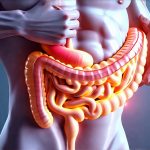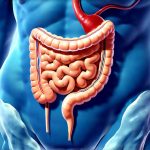Digestive burnout – a term increasingly used to describe chronic digestive discomfort stemming from prolonged stress, poor diet, and lifestyle factors – is becoming alarmingly common. It’s not typically a single disease but rather a constellation of symptoms like bloating, gas, altered bowel habits, fatigue, and even mood disturbances, all signaling that your gut is overwhelmed and struggling to function optimally. Many individuals experience this as a seemingly endless cycle of dietary restrictions, supplements, and fleeting relief, often feeling lost in a sea of conflicting information. Traditional diagnostic approaches may sometimes fall short, leading to frustration and the sense that something is wrong but remaining undiagnosed. This is where understanding the microbiome, the vast community of microorganisms residing in our digestive tract, becomes incredibly powerful.
The gut microbiome isn’t just passively present; it’s actively involved in nearly every aspect of our health, from digestion and nutrient absorption to immune function and even mental wellbeing. When chronically stressed or exposed to factors like antibiotics, processed foods, and lack of sleep, the delicate balance within this microbial ecosystem can be disrupted – a state known as dysbiosis. This imbalance is frequently at the heart of digestive burnout, perpetuating symptoms and hindering recovery efforts. Addressing digestive burnout effectively requires more than just symptom management; it demands a holistic approach that focuses on rebuilding and nourishing the microbiome to restore its resilience and functionality. Understanding this connection allows for targeted interventions that go beyond temporary fixes and promote long-term gut health. You might also find food rotation helpful in managing sensitivities.
The Gut-Brain Connection & Digestive Burnout
The intricate relationship between the gut and the brain, often referred to as the gut-brain axis, plays a central role in digestive burnout. It’s not a one-way street; communication flows in both directions. Our brains can influence gut motility, secretion of digestive enzymes, and even the composition of the microbiome through the release of neurotransmitters and hormones during times of stress. Conversely, the gut microbiome communicates with the brain via several pathways, including the vagus nerve, immune signaling molecules, and the production of neurochemicals like serotonin and dopamine. This constant communication loop means that chronic stress – a major contributor to digestive burnout – not only directly impacts the gut but also alters the microbiome’s ability to function effectively.
Dysbiosis can exacerbate this feedback loop. An imbalanced microbiome may contribute to increased intestinal permeability, often called “leaky gut,” allowing bacterial byproducts and undigested food particles to enter the bloodstream, triggering immune activation and systemic inflammation. This heightened inflammation further stresses the brain and can worsen anxiety, depression, and cognitive function – all common companions of chronic digestive issues. Essentially, the gut-brain axis becomes a cycle of distress; gut imbalance fuels mental health challenges, which in turn exacerbate gut dysfunction. Emotional patterns often play a role here too.
Recognizing this connection is critical for recovery. Strategies aimed at reducing stress—mindfulness practices, meditation, yoga, deep breathing exercises – aren’t just beneficial for mental wellbeing, they are fundamental to restoring gut health. Similarly, interventions that improve microbiome diversity and function can have a positive impact on mood, cognition, and overall resilience. This holistic perspective shifts the focus from merely alleviating symptoms to addressing the underlying causes of digestive burnout. A key element is also learning how to avoid discomfort from everyday foods.
Rebuilding Your Microbiome: A Multi-faceted Approach
Restoring a healthy microbiome isn’t about eliminating bacteria; it’s about fostering diversity and cultivating beneficial microbial communities. This requires a multi-pronged approach that goes beyond simply taking probiotics (though they can be part of the strategy). Dietary changes are paramount, focusing on foods that nourish both you and your gut microbes. This means prioritizing plant-based foods rich in fiber – fruits, vegetables, whole grains, legumes, nuts, and seeds – as these provide prebiotics, non-digestible fibers that act as food for beneficial bacteria. Reducing intake of processed foods, refined sugars, artificial sweeteners, and excessive saturated fats is also crucial, as these can promote the growth of harmful bacteria and contribute to inflammation.
Beyond diet, lifestyle factors play a significant role. Regular physical activity promotes gut motility and microbial diversity. Getting adequate sleep (7-9 hours per night) allows your body – and your microbiome – time to repair and regenerate. Managing stress levels through techniques like meditation, yoga, or spending time in nature is essential for reducing cortisol levels, which can negatively impact gut health. Furthermore, minimizing unnecessary antibiotic use is vital, as antibiotics indiscriminately kill both harmful and beneficial bacteria, disrupting the delicate microbial balance. Poor sleep can significantly exacerbate these issues.
Finally, consider incorporating fermented foods into your diet. Foods like yogurt (with live cultures), kefir, sauerkraut, kimchi, kombucha, and miso are naturally rich in probiotics – live microorganisms that can help repopulate the gut with beneficial bacteria. However, it’s important to introduce these foods gradually to avoid digestive upset, as a sudden influx of probiotics can sometimes exacerbate symptoms in sensitive individuals. Remember that probiotic supplementation isn’t always necessary or effective for everyone; food-based sources are often preferable and better tolerated. Steamed foods can also be easier to digest during recovery.
Dietary Strategies for Microbiome Support
- Elimination Diet: For some, identifying trigger foods is essential. A carefully designed elimination diet – under the guidance of a qualified healthcare professional – can help pinpoint sensitivities that contribute to inflammation and gut dysfunction. This typically involves removing common inflammatory foods (gluten, dairy, soy, corn, etc.) for a period of time and then systematically reintroducing them to observe any reactions.
- Low FODMAP Diet: FODMAPs (Fermentable Oligosaccharides, Disaccharides, Monosaccharides, and Polyols) are short-chain carbohydrates that can be poorly absorbed in the small intestine, leading to fermentation by gut bacteria and causing bloating, gas, and abdominal pain. A low-FODMAP diet – again, ideally guided by a professional – can provide temporary relief for individuals with IBS or other functional digestive disorders. It’s not intended as a long-term solution but rather a tool to reduce symptoms while addressing the underlying microbiome imbalance.
- Increase Polyphenol Intake: Polyphenols are plant compounds with potent antioxidant and anti-inflammatory properties that also have prebiotic effects, meaning they nourish beneficial gut bacteria. Excellent sources include berries, dark chocolate (70% cacao or higher), green tea, coffee, apples, grapes, and onions. Incorporating a variety of polyphenol-rich foods into your diet can help promote a healthy microbiome and reduce inflammation.
Stress Management & the Gut
Stress is undeniably a major driver of digestive burnout, and effective stress management techniques are essential for recovery. Chronic activation of the hypothalamic-pituitary-adrenal (HPA) axis – our body’s central stress response system – can disrupt gut motility, alter microbiome composition, and increase intestinal permeability. Finding strategies to calm the nervous system is therefore paramount.
- Mindfulness & Meditation: Regular mindfulness practices or meditation can help reduce cortisol levels, improve vagal tone (the activity of the vagus nerve, which connects the brain to the gut), and promote a sense of calm. Even just five to ten minutes of daily mindfulness can make a significant difference.
- Deep Breathing Exercises: Diaphragmatic breathing – slow, deep breaths that originate from the abdomen – activates the parasympathetic nervous system (the “rest and digest” response) and helps counteract the effects of stress. Simple techniques like box breathing (inhale for four counts, hold for four counts, exhale for four counts, hold for four counts) can be incredibly effective.
- Nature Exposure: Spending time in nature has been shown to reduce cortisol levels, lower blood pressure, and improve mood. Even a short walk in the park or sitting outdoors can have restorative benefits.
Supporting Gut Motility & Digestion
Beyond addressing the microbiome and stress, supporting optimal gut motility and digestion is crucial for alleviating digestive burnout symptoms. Slowed or erratic gut motility can lead to constipation, bloating, and discomfort. Conversely, overly rapid motility can result in diarrhea and malabsorption.
- Hydration: Drinking adequate water is essential for maintaining healthy gut motility. Aim for at least eight glasses of water per day.
- Chew Your Food Thoroughly: Digestion begins in the mouth! Chewing your food thoroughly breaks down food particles, making them easier to digest and reducing the burden on the intestines.
- Consider Digestive Enzymes: For some individuals, supplementing with digestive enzymes – particularly if they have a history of pancreatic insufficiency or enzyme deficiencies – can help improve digestion and nutrient absorption. However, it’s important to consult with a healthcare professional before taking any supplements.
It’s crucial to remember that recovery from digestive burnout is rarely linear. There will be ups and downs, setbacks and progress. Patience, self-compassion, and a commitment to holistic health are key. Focusing on building a strong foundation of gut health through dietary changes, stress management techniques, and lifestyle modifications – rather than chasing quick fixes – will ultimately lead to lasting relief and restored digestive wellbeing. If you find yourself struggling with persistent issues, burnout recovery may be a factor.


















